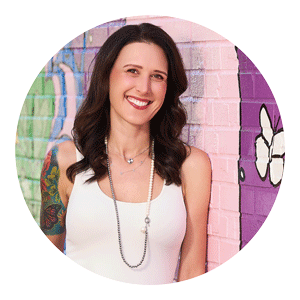Protecting Patients and Their Right to Care
By Kamrin Baker
Photo by Ron Coleman, C4 Photography
Dr. Emily Patel went into medical school certain that the one thing she didn’t want to pursue was obstetrics and gynecology. But when her clinical rotations placed her in the maternity ward, a light bulb went off.
“Just being a part of this experience for a family, bringing a new baby into the world and expanding their family—it was just so amazing,” Patel said. “And not only that, but the GYN aspect of reproductive health, the continuum of women’s health in general, I knew I was in my element.”
She has since been in practice for nearly a decade, specifically working in maternal and fetal medicine. Up until recently, she didn’t see any of her work as political. Difficult, rewarding and occasionally heartbreaking? Sure. But at the crossroads of human rights? Well, she didn’t think that was her place to decide.
Despite some nudges from colleagues who asked her to testify on 2019-era state legislation on abortion, Patel felt like her patients were safe; that she, as a physician, was safe. It wasn’t until the fall of Roe v. Wade, when the Supreme Court left the legality of abortion up to states—and members of the Nebraska State Legislature quickly mobilized to make the state’s already-strict abortion laws even more draconian—that a fire was lit.
Patel was already a mother to two young boys, and said she remembers in the summer of 2022, knowing that an abortion ban wouldn’t affect her own reproductive health, but could be the difference between life and death for other mothers.
“While this is not personal for me right now, it is very much personal for the people that I take care of every day,” she remembered thinking. “I can’t really just sit by and not say anything.”
So, like many of the women who fought for reproductive freedom before her, Patel and a number of her colleagues gathered in each other’s basements, planning and organizing. Ultimately, they decided, if abortion would be decided by their state, they needed to help elect people in Nebraska who would protect reproductive rights.
Patel, alongside Dr. Maureen Boyle, Dr. Jodanne Hedrick, Dr. Elizabeth Weedin, Dr. Stephanie Gustin, Dr. Meghan Oakes, Dr. Abigail Delaney and Dr. Elizabeth Constance, founded a political action committee: Campagin for a Healthy Nebraska.
All female physicians practicing in the state, their goal is not only to protect access to reproductive healthcare, but to help build trust for physicians and nurses to do what’s best for their patients—with their patients.
As of now, physicians who perform care outside of Nebraska’s 12-week abortion ban could be stripped of their licenses, most likely ending their medical careers. And as of now, patients like Patel’s—many of whom are people with desired pregnancies facing devastating diagnoses—are forced to travel out of state and spend exorbitant time, energy and resources—just to find the care they need.
“What I’ve heard patients say to me is, ‘Why can’t I get the care that I need in the state that I live in?’ or ‘Why am I being made to feel like I’m a criminal?’ Patients are devastated already to get these diagnoses and then get that secondary feeling of shame, like they need to escape in the night, go across state lines, to get the care they need,” Patel said. “It’s a double hit for them.”
A new ballot initiative—439—driven by the Protect Our Rights coalition, could enshrine the fundamental right to abortion in the state’s constitution. It is be on the ballot this fall—and it represents what Patel calls “a restoration of routine medical care.”
For Patel—who has proudly flourished in her activism and now serves as a board member for the Women’s Fund of Omaha—abortion is certainly political, but it’s also simple medicine.
“It’s really hard for physicians who have always been told to not bring politics into things, always told to be apolitical, to make that mental shift that this is something political,” she said. “But they’re taking rights away from patients and we are not practicing standard of care. We need to speak out about that.”
In 2022, Campaign for a Healthy Nebraska successfully rallied the Nebraska Medical Association to take a stance in solidarity with physicians to protect reproductive rights, coming out in clear opposition to the current 12-week abortion ban in Nebraska. Although the bill passed in the legislature, the activism community that welcomed Patel in with open arms has given her a steady influx of hope, especially leading up to the election.
“The continual support and reinforcement from the people who are around me really does make me feel like we’re all in this together,” Patel said. “I’m super energized by people’s willingness to learn, and I’m ready to get out there and educate people and make sure they know what’s on the ballot.”
As she delivers bundles of joy and steadies her patients through the unpredictable waves of women’s health by day, her job now also entails protecting that very ability to provide life-saving care.
“Prior to any of this, I was just focused on going to work, seeing my patients, and getting my job done,” she said. “That’s all fine and good, but this work has opened my eyes up to all the other things I can do to help.” W

